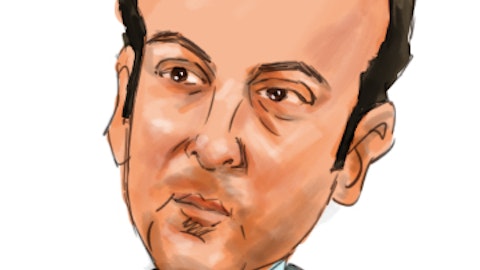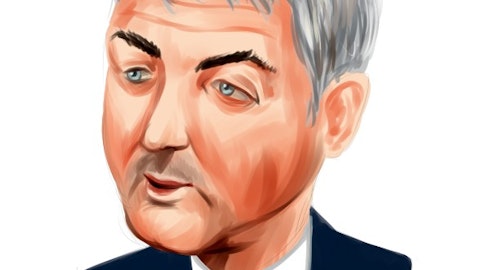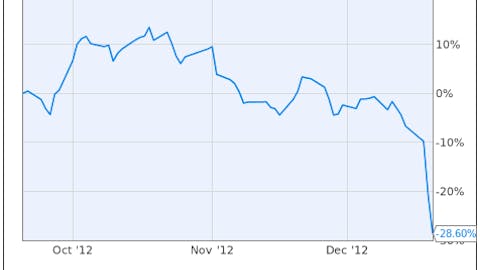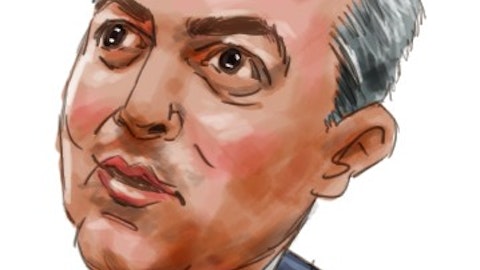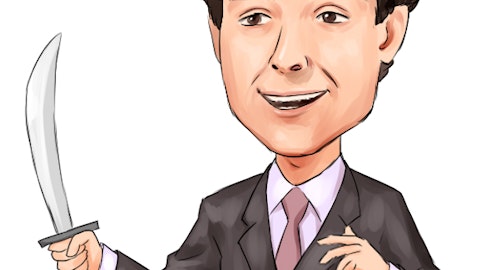With all of the uncertainty surrounding Herbalife Ltd. (NYSE:HLF), thanks in part to billionaire Bill Ackman’s barrage of attacks, we decided to dig a bit deeper and look at the multi-level marketing company industry. The major MLM companies include a few of Herbalife’s key peers: Avon Products, Inc. (NYSE:AVP), Nu Skin Enterprises, Inc. (NYSE:NUS), Weight Watchers International, Inc. (NYSE:WTW), and Medifast, Inc. (NYSE:MED).
Herbalife has been beaten down over 30% the past week mostly due to short positions announced by Bill Ackman of Pershing Square Capital and Whitney Tilson of T2 Partners. Being called into question are Herbalife’s business practices. In a detailed presentation, Ackman questions Herbalife’s sustainability given its above-average product prices, minimal R&D spending and virtually nonexistent product advertising (check out Bill Ackman’s newest picks).
Ackman has trouble understanding why Herbalife’s products are so successful, especially when the company “spends ‘de minims’ dollars on advertising.” In his opinion, Herbalife is a big supporter of its name and logo, but not its products. This is the foundation of Ackman’s argument: that Herbalife is hiding its true motives and practices, where he believes the company is spending an out-sized amount of its retail profits on recruiting rewards – well in excess of the 50% allowed by the FTC.
The pressures on Herbalife and its peers stem from the fact that there is a fine line that MLM companies must toe in order to avoid being labeled a pyramid scheme. The FTC defines pyramid schemes as operations that rely on continual recruiting as opposed to product sales.
Worth noting is that despite all of the concerns that Ackman has brought to light, he has failed to drag down the entire MLM industry as far as HLF has fallen. Herbalife is down 40% over the past month and other major peer Nu Skin is down 25%, but Avon is down only 2%, and Weight Watchers (-7%) and Medifast (-13%) are down close to double-digits.
So what can investors do?
Avon is expected to see sales declines of 1% this year, though it has a strong presence in Latin America, Europe and Africa. Worth noting is that many MLM companies see their greatest success in emerging markets, where a personal touch when selling products is typically more effective.
We are surprised that Avon is only down 2% during the last month, not because we believe that it is a pyramid scheme, but because it has relatively sub-par valuation and growth metrics. Avon trades at 53x earnings – well above other MLMs – and has a 5-year expected EPS growth rate of -13%.
Part of Avon’s pressures are related to the step-down of executive chairman Andrea Jung, where new management will take the reigns mid-stride in what has become a difficult turnaround. Billionaire and long-time Forbes columnist Ken Fisher took a new position in Avon last quarter (check out all of Ken Fisher’s newest picks).
Nu Skin, meanwhile, has seen the most pressure in light of Ackman’s attacks. Nu Skin trades relatively cheaply – much like Herbalife – but has the best expected growth of all five stocks listed here, with a 17% 5-year expected EPS growth rate. Israel Englander and D.E. Shaw were both top name investors in the skincare stock last quarter (see D.E. Shaw’s hottest picks here).
Weight Watchers is expected to see revenues up 9% in 2013 as it transitions to a greater online presence. Weakness in Europe has put pressure on sales of late, but the weight management company expects its top line to fall only 1% this year.
Despite the potential for Weight Watchers products and the fact it has the highest operating margin (28%) of the MLM companies listed, it still trades at the low end of the industry at only 11x forward earnings. Billionaire Ken Griffin – founder of Citadel Investment Group – is now one of Weight Watchers biggest shareholders after increasing his stake over 1000% last quarter (check out Ken Griffin’s biggest bets).
Notable Herbalife competitor Medifast was accused of being a pyramid scheme in June 2009 and since then the company is up over 180%. Medifast also faced allegations in 2010 when Fraud Discovery Institute released a report detailing improprieties related to the company’s business model. At the time, Fraud Discovery founder Barry Minkow had also publicly disclosed short positions in Medifast.
The stock has since recovered and now – next to Avon – trades at one of the most expensive valuations in the industry, at 27x trailing earnings and 18x forward earnings. Medifast appears to have solid growth prospects with a 15% expected long-term EPS growth rate and a debt ratio next to zero. Steven Cohen of SAC Capital was one of the big-name investors in Medifast last quarter (check out Steven Cohen’s top picks).
In short, though many MLM companies have at some point been accused of being pyramid schemes, most have recovered and survived. The big difference with Herbalife’s latest pressures is that the accuser is a billionaire hedge fund manager. If Ackman can get enough support to convince the FTC and SEC to take yet another look at Herbalife, there may be calls to analyze the entire MLM industry.
For more Herbalife coverage, continue reading below:
Herbalife: Is the Selloff Overdone?
Ackman Will Give His Personal Profits From HLF Short to Charity

